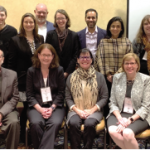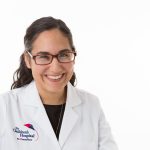Unable to connect with rheumatology fellows and patients in person, Anisha Dua, MD, MPH, and a team of rheumatologists have worked quickly to find new ways to communicate and share resources. Dr. Dua directs rheumatology medical education and the fellowship training program at Northwestern Memorial Hospital (NMH), Chicago. She spoke with The Rheumatologist about how…






